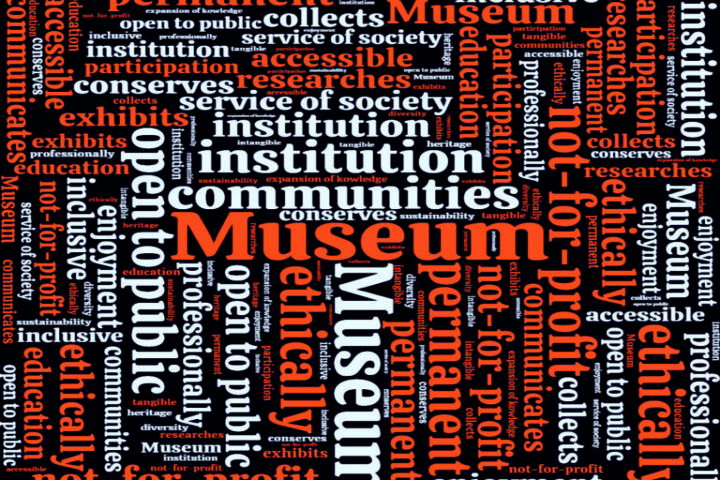March 18, 2022
Museum Definition – ICOM Europe option

After careful reading of all proposals for the definition of museum currently under consideration inside ICOM, the board of ICOM Europe decided to pronounce in favor of proposal 3 (see below).
This was based on the fact that only proposals 2 and 3 refer to the “permanent” nature of museums – a characteristic which was considered by most of the European National Committee integrating our Regional Alliance, in 2019, and the General Conference in Kyoto, as imperative in any definition of museum.
Between proposals 2 and 3, we favored 3 because it presents the “functions” and “purposes” in a better, more rational way. In proposal 3, “research” is considered to be a function of museums (the first one, before collects, which makes entirely sense, since we only collect what by research is considered to be collectible…). Differently from this, in proposal 2, “research” is considered as a purpose of museums, like education, reflection (which is taken as an ambiguous term) and enjoyment. This makes a lot of difference: research shall undoubtedly be a function not a purpose of museums. And these, purposes, are better enumerated in proposal 3, following more or less the current museum definition (changing only “study” by “expansion of knowledge”, which is fairly acceptable, even if not truly necessary).
ICOM Europe will however be open to consider the possible incorporation of terms/concepts, taken from other proposals, in order to enrich this one. This is the case of the mention of “cultural and natural”, referring to heritage, present on proposal 2 and omitted in proposal 3.
ICOM Europe also urges to better consider the French and Spanish versions of the definition in aspects like the change of the subject from “Museum”, in singular, which is commendatory in a definition, abstract by nature, to “museums” (“musées”, “museos”, “ils”).
Finally, ICOM Europe board strongly congratulates ICOM Define for the work done up to this phase, following a democratic and transparent methodology of auscultation of the all ICOM community, in a process allowing to anticipate the final widely supported adoption of a new Museum Definition.
Proposal 3
A museum is a not-for-profit, permanent institution in the service of society that researches, collects, conserves, exhibits, and communicates tangible and intangible heritage. Open to the public, it is accessible, inclusive, and fosters diversity and sustainability. The museum operates professionally, ethically and with the participation of communities, offering varied audience experiences for the purposes of education, enjoyment and the expansion of knowledge.
Un musée est une institution permanente, à but non lucratif et au service de la société, qui se consacre à la recherche, la collecte, la conservation, l’exposition et la diffusion du patrimoine matériel et immatériel. Ouvert au public, il est accessible, inclusif, et encourage la diversité et la durabilité. Les musées fonctionnent avec professionnalisme et selon des critères d’éthique en collaboration avec les communautés. Ils offrent à leurs publics des expériences variées d’éducation, de divertissement et d’accroissement des connaissances.
Un museo es una institución sin fines de lucro, permanente y al servicio de la sociedad que investiga, colecciona, conserva, exhibe y comunica el patrimonio material e inmaterial. Abierto al público, el museo es accesible e inclusivo, y fomenta la diversidad y la sostenibilidad. Los museos operan profesional y éticamente con la participación de comunidades, ofreciendo experiencias variadas a sus audiencias para la educación, el disfrute y la expansión del conocimiento.